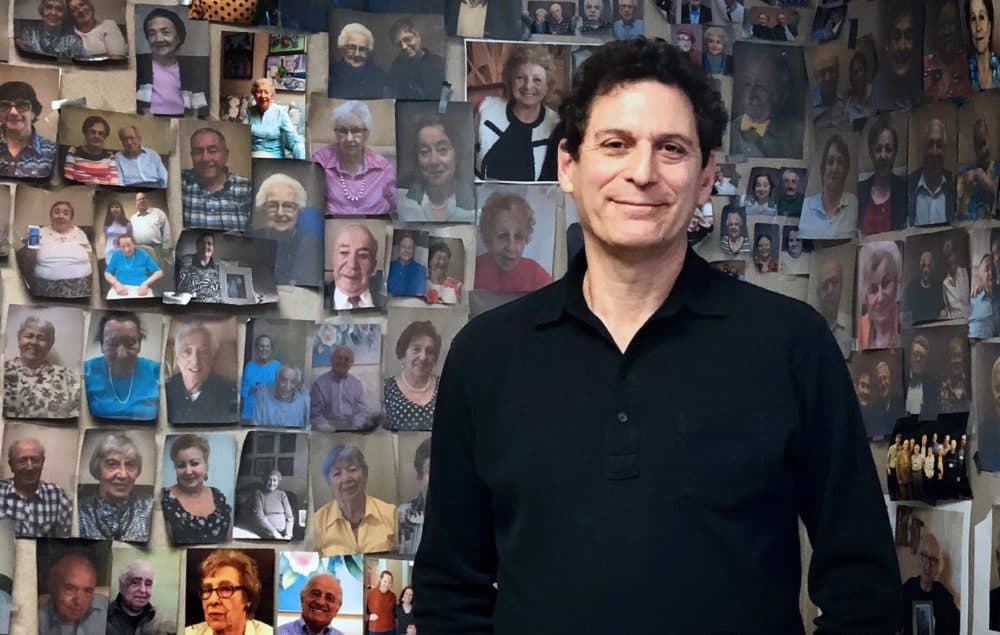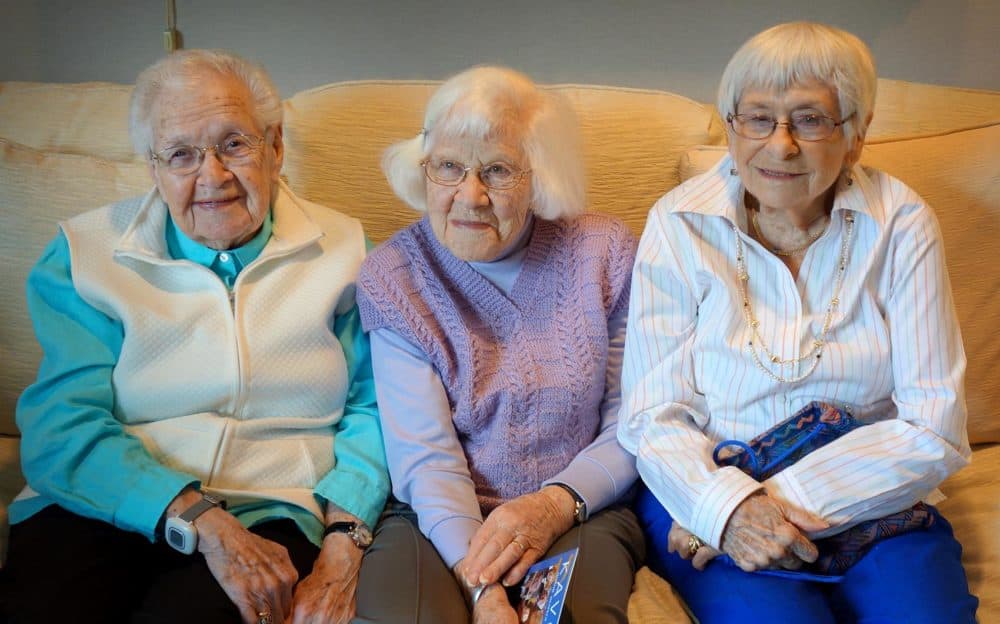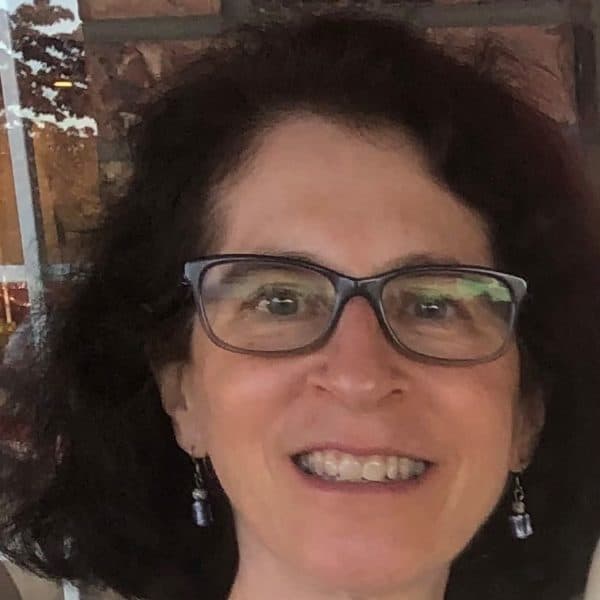Advertisement
This Photographer's Goal: A Picture Of Every Holocaust Survivor In The U.S.
Resume
An estimated 100,000 Holocaust survivors live in the United States today — all of them over the age of 70. With their numbers dwindling and anti-Semitism on the rise, some wonder, will they be remembered?
Enter John and Amy Israel Pregulman. The Denver couple has made it their mission to photograph as many Holocaust survivors as possible, before it's too late.
At a recent photo shoot at Hebrew SeniorLife's Orchard Cove in Canton, Massachusetts, the Pregulmans met three survivors who agreed to be part of the project.
John explains that their efforts started three years ago when he was commissioned to take pictures of survivors for an exhibit at a Holocaust museum in Illinois. After his work there was done, he felt like he needed to continue.
"I went there and took 65 photos in three days and became absolutely enthralled with their attitude, their outlook and the amazing things they've done in their lifetimes, since the war," he says.
Not long after he started his independent project, John says he made a disturbing discovery: poverty.
"One particular time in Orlando I was taking a photo and invariably every time I take a photo they want to give me something to eat," he says. "But we went into her fridge and there was nothing there. She said, 'I ran into an unexpected expense and had to spend my grocery money to take care of it. So I'll do without.' "
Until then, Amy says, they were unaware that 35,000 U.S. Holocaust survivors — about a third — live below the poverty line. That's when they set up their not-for-profit, KAVOD, which gives emergency aid to Holocaust survivors in need. The money usually comes in the form of gift cards, and covers needs like food and medicine, and also, recently, hurricane relief aid.
KAVOD, the Hebrew for "dignity," helps cut through the red tape of getting financial aid, John says. Once directed to a survivor through Jewish Family Services, "All we need to know is: What's their situation? What do they need? We don't need to know anything except that they are survivors."
At the Orchard Cove Independent Living Center, the Pregulmans are photographing 12 survivors, including Edith Bard, 95, Trudy Schwartz, 99, and Esther Adler, 94. The women say they've been looking forward to the project.

"My parents were killed in a concentration camp in Poland in 1942," Bard says. "So anything that concerns the Holocaust is certainly very close to my heart."
Esther Adler, who has gone on to write poetry, plays and stories about the war, says that "my childhood, my youth was not growing up in a family ... so this is my life."
She adds that there's now an urgency to tell her story, as her friends grow older and sicker.
"Some of them are survivors and one with whom I was very close passed away recently, it feels like a piece of me is lost," Adler says.
For Schwartz, the project is a way to remember.
"I guess a perpetuation, a memory of all the things that happened," she says. "It's important to document the people who survived."
When it's time to have their photos taken, the three women — none of them over 5 feet tall — spring up. There's not a cane or a walker between them. They head over to a sofa in a living room at Orchard Cove, where John is waiting for them. As he snaps their images, John explains a little about how his subjects approach the work he's doing.
"Sometimes they smile," he says, "sometimes they don't. The photos are usually from the waist up and I try to capture their personality. So basically I take maybe 50 to 75 photos of each one. And after each shoot I pick six or seven of the better ones."
But there's no gallery, no exhibition and no fanfare. He simply gives the photos to the survivors. The only place the 720 pictures are displayed is on his office wall, plastered from ceiling to floor with faces — each one a triumph over history.
"It really gives them a sense of dignity and worth and happiness to know that ... people are going to remember them. Because their biggest fear is that they're going to be forgotten."
John Pregulman
Each survivor also gets a hand-written personal note from John along with his or her photos, something Amy Pregulman says helps to create a connection.
When the photo shoot is done, the women head back to the other side of the salon, where Amy is sitting. Despite a long day of photographs and reliving difficult wartime memories, Edith Bard has more to tell.
"I want to tell you about Kristallnacht," she says. "Because I was there."
She describes how soldiers came to her home looking for her father or brother, but that when they weren't home, they took her instead — over her mother's objections.
She was dragged out into the streets and forced to paint Stars of David on Jewish businesses, along with the word "jude" — German for Jew. At the end of the night the Nazi soldiers poured the bucket of white paint over her and sent her home.
After that, she says, "life was never the same."
Her story prompts empathy and comfort from Adler and Schwartz.
"So much history," Adler says. "And it shouldn't be forgotten and those of us who are still around ... we can testify and talk about it."
Schwartz nods.
"You know, you grow up and you think you'll live there forever and you're part of this country and then all of a sudden you're a stranger and you get thrown out," she says. "It's sad. It's upsetting. It's something you remember for the rest of your life."
John says he sees a transformation in the survivors from before they sit for a photo session to the moment they receive their pictures.
"It really gives them a sense of dignity and worth and happiness to know that ... people are going to remember them," he says. "Because their biggest fear is that they're going to be forgotten."
This segment aired on December 20, 2018.
